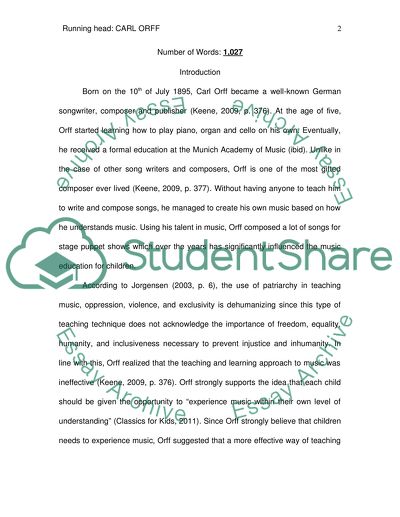Cite this document
(Carl Orff Songwriter, Composer and Publisher Literature review, n.d.)
Carl Orff Songwriter, Composer and Publisher Literature review. Retrieved from https://studentshare.org/biographies/1406854-carl-orff-songwriter-composer-and-publisher
Carl Orff Songwriter, Composer and Publisher Literature review. Retrieved from https://studentshare.org/biographies/1406854-carl-orff-songwriter-composer-and-publisher
(Carl Orff Songwriter, Composer and Publisher Literature Review)
Carl Orff Songwriter, Composer and Publisher Literature Review. https://studentshare.org/biographies/1406854-carl-orff-songwriter-composer-and-publisher.
Carl Orff Songwriter, Composer and Publisher Literature Review. https://studentshare.org/biographies/1406854-carl-orff-songwriter-composer-and-publisher.
“Carl Orff Songwriter, Composer and Publisher Literature Review”, n.d. https://studentshare.org/biographies/1406854-carl-orff-songwriter-composer-and-publisher.


